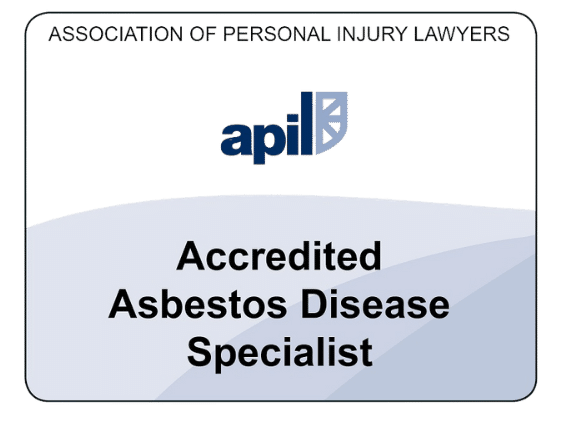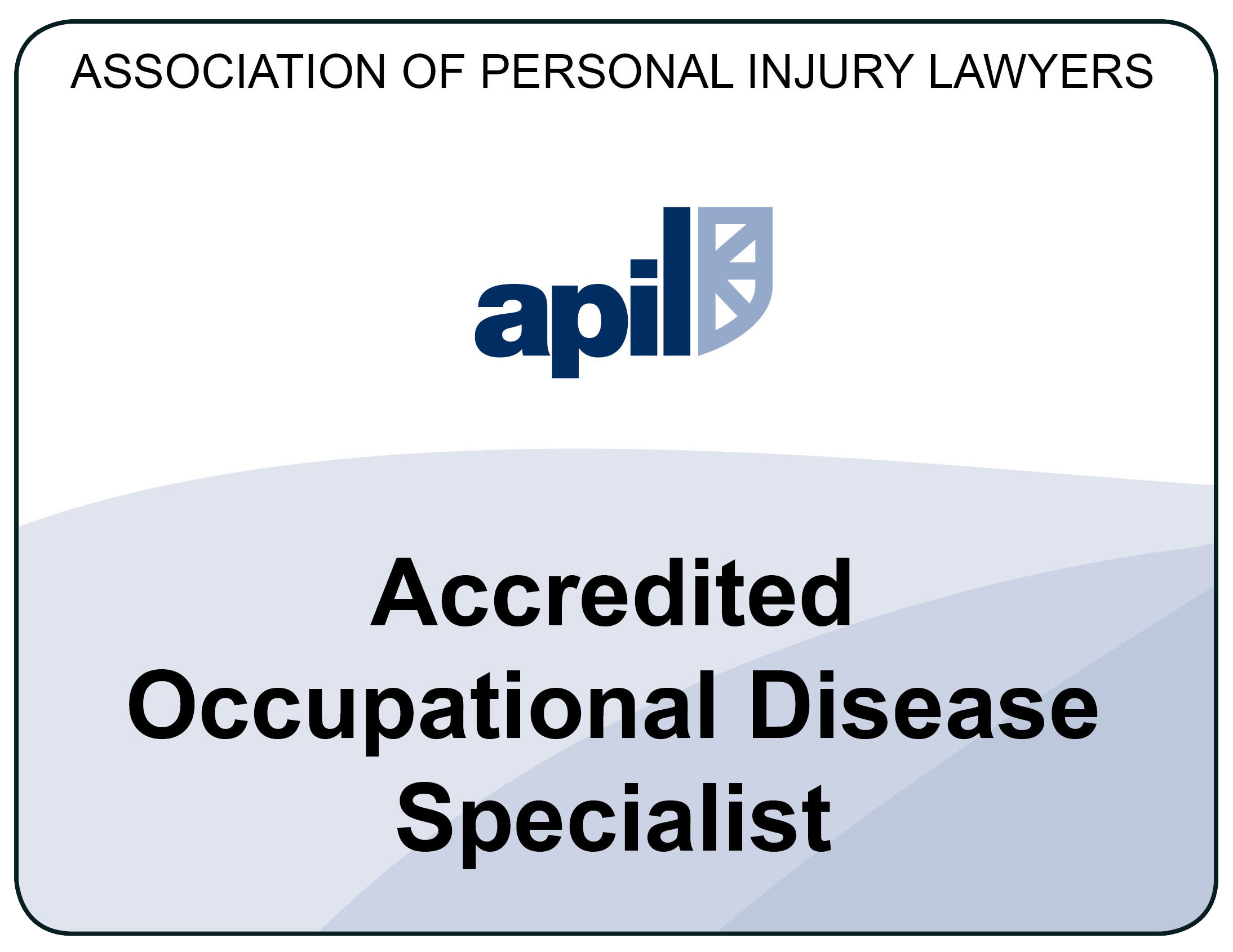Silicosis Compensation Claim Specialists
Our specialist workplace illness solicitors have a wealth of expertise in representing clients in silicosis compensation claims and are ready to help you if you need to pursue such a claim.
You may be able to pursue a silicosis compensation claim if you have been diagnosed with silicosis, or other respiratory condition caused by exposure to silica dust at work, such as COPD or lung cancer.
You can obtain top legal advice from a specialist solicitor with a proven track record of achieving successful claims for clients suffering from silicosis.
Silicosis on the rise: a growing risk
You might have thought that silicosis was an industrial illness which firmly belonged in the past, particularly given the increased regulation of workplaces over recent decades.
However, solicitors at Hodge Jones & Allen have recently been instructed by several workers who have developed this respiratory condition, as a result of their work, and so we appear to be facing a resurgence of this lesser-known condition.
The level of personal care, professionalism and desire to get the very best result was exceptional. They dealt with everything supporting us every step of the way. They genuinely care about their clients and their welfare.
What is silicosis and how is it caused?
You might have thought that silicosis was an industrial illness which firmly belonged in the past, particularly given the increased regulation of workplaces over recent decades.
However, solicitors at Hodge Jones & Allen have recently been instructed by several workers who have developed this respiratory condition, as a result of their work, and so we appear to be facing a resurgence of this lesser-known condition.
What are the symptoms of silicosis?
Exposure to RCS can cause lung fibrosis, which is hardening or scarring of lung tissue, resulting in reduced lung function and severe breathlessness. It is often progressive, and the damage can continue to develop even once exposure has ceased. Unfortunately, the condition is irreversible.
Silicosis can be classed differently according to the duration and intensity of exposure to RCS, which can vary from intense exposure over a matter of months, to heavy exposure for 10 years or more.
Silicosis sufferers have an increased risk of developing arthritis, kidney disease and tuberculosis.
Inhalation of RCS can also cause Chronic Obstructive Pulmonary Disease (COPD) or lung cancer. COPD and lung cancer are often automatically associated with smoking and so it is important for those who have worked with RCS to be aware that smoking isn’t the only cause of these conditions.
Who is at risk of developing silicosis?
Occupations that place individuals in the workplace at risk of developing silicosis include:-
- Workers in quarries, slate works, foundries, potteries, construction, stonemasonry and those involved in kitchen/bathroom fitting.
- Workers who are engaged in activities such as abrasive blasting with sand; sawing bricks or concrete; sanding or drilling into concrete walls; grinding mortar; manufacturing bricks, concrete blocks, stone countertops, or ceramic products; and cutting or crushing stone.
- Workers involved in dealing with industrial sand when used in certain operations, such as foundry work and hydraulic fracturing (fracking), also a source of RCS exposure.
- Workers in industries which use silica flour in the manufacture of goods are also at risk.
All these activities can result in exposure to RCS dust, though the silica content of different materials varies greatly as will be seen from the table below:
| Material / Product | Typical silica content (%) |
|---|---|
| Sandstone, Gritstone, Quartzite | Up to 70% |
| Concrete, Mortar | 25-70% |
| China stone | Up to 50% |
| Slate | Up to 40% |
| Brick | Up to 30% |
| Granite | Up to 30% |
| Marble, limestone, chalk | Up to 2% |
In 2004, it was estimated that 600,000 people in the UK were exposed to RCS and at risk of developing silicosis, according to the National Heart and Lung Institute, Imperial College, London.
In the 10 years from 2013-2023, an average of 12 people died from silicosis each year. However, numbers of those affected by silicosis are believed to be seriously under-reported as this can be masked by secondary illnesses including heart failure, lung cancer and COPD. This means that the true scale of the problem is not really known. What is undeniable is that numbers of those diagnosed is on the rise.
"Having had dealings with Hodge Jones & Allen Solicitors, I found them to be very helpful, professional and confidential. I was kept informed throughout my dealings with them and I would highly recommend them."
Why are cases of silicosis on the increase?
Artificial stone, which also called engineered or reconstituted stone or “quartz” is increasingly used to make countertops in kitchens and bathrooms, which are replaced much more frequently now than in the past. This material comprises crushed stone bound in resin with pigments added. The silica content of this material is over 90%. Manufacture of the material leads to the escape of silica dust until the crushed stone is absorbed.
Installation of the countertops involves cutting of the material with electric saws or grinders and polishing it, which is usually done before it is installed in the customer’s home.
Unfortunately, inadequate safety measures have resulted in what is now an increasing global health problem.
How can silicosis be avoided?
Short of the government banning artificial stone, as has happened in Australia, there are a number of precautions which employers must/should take under the Control of Substances Harmful to Health Regulations 2002 to prevent their employees being exposed to the dust, including:-
- Preventing/controlling exposure to keep it below the threshold limit;
- Use alternative materials with a lower RCS content;
- Use dust suppression mechanisms such as water sprays;
- Provide respiratory protection, etc.
Helpful guidance can be found at HSE.gov.uk
Unfortunately, where employers are small businesses or in situations where workers are self-employed, there is a heightened risk that these precautions will not be taken.
What help is available to sufferers of silicosis?
1. Government benefits
An employee who has developed silicosis as a result of exposure to silica dust during employment, may apply to the Department for Work and Pensions (DWP) for industrial injuries benefits, subject to meeting the relevant criteria.
2. Claiming compensation
Any employee who has been exposed to silica dust in the course of their work may be able to seek compensation from their former employer or their employer’s liability insurers if their employer is no longer in business. A successful claim can compensate for the illness and its effects and for any financial losses it causes, including loss of income if the person is unable to work as a result.
How can our specialist solicitors help silicosis sufferers?
If the situations described in the above article are applicable to you, the workplace you work within, or that of a loved one or friend, then please contact our specialist Asbestos & Workplace Illness team.
Our highly experienced and specialist lawyers can look into your potential claim for developing work-related silicosis and help you understand your rights and evaluate your legal options.
Our specialist solicitors can be reached through our enquiry form or by calling us on 0330 822 3451. Get in touch today and we will contact you as soon as possible.















